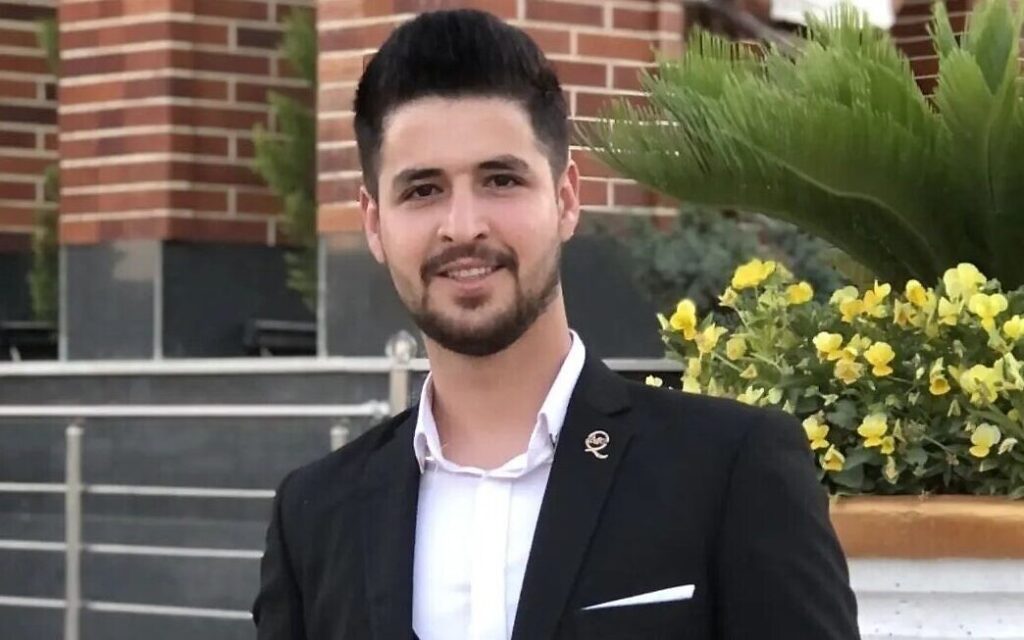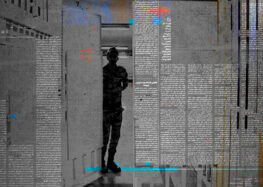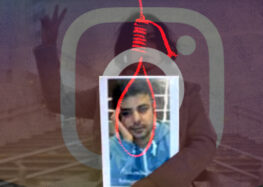Street Protester Mohammad Ghobadlou Hanged in Iran Amid State-Sanctioned Killing Spree

January 23, 2024 — The execution today of 23-year-old street protester Mohammad Ghobadlou is a stark reminder of the Islamic Republic of Iran’s broken and twisted judicial process, where defendants are sent to the gallows without due process as the state uses state-sanctioned killings to stamp out dissent, said the Center for Human Rights in Iran (CHRI).
“The killing of Mohammad Ghobadlou in Iran, who struggled with mental illness, stands as a glaring injustice, a murder carried out under the guise of a judicial process that lacks any semblance of fairness,” said CHRI Executive Director Hadi Ghaemi.
“His life was taken through an act of state-sanctioned killing that demands immediate global action to prevent further atrocities,” he added.
Also hanged today in Qezel Hesar Prison in Karaj today was Farhad Salimi, an ethnic Kurd who was arrested in 2009 on charges including murder and alleged membership in an anti-state political group.
Salimi, along with three other Kurdish men, was arrested in 2009 and sentenced to death following a sham trial that lacked due process. Khosro Besharat, Kamran Sheikheh, and Anwar Khezri also received death sentences in the same case. In late December 2023, they launched a hunger strike, protesting the unjust executions of fellow political prisoners and urgently pleading for the preservation of their own lives.
Ghobadlou, who struggled with bipolar disorder, had been under psychiatric supervision since the age of 15, according to Amnesty International. He was arrested during Iran’s nationwide “Woman, Life, Freedom” protests in 2022 on charges of killing a policeman named Farid Karampour Hassanvand.
Despite his mental illness, Ghobadlou faced a trial during the “Woman, Life, Freedom” protests marred by coerced “confessions” extracted through torture, resulting in two death sentences.
Judge Abolqasem Salavati, notorious in Iran for rendering sentences based on unfounded claims by state security agencies, sentenced Ghobadlou to death on the charge of “corruption on Earth” through the secretive Islamic Revolutionary Court system. Another death sentence, for murder, was issued by a criminal court in Tehran province.
Despite the judiciary’s news agency, Mizan, previously reporting the suspension of the death sentence for “corruption on Earth” pending investigation into the intentional murder charge, Ghobadlou was hanged today. His lawyer, Amir Raesian, has called for transparency and the release of information regarding the execution.
Following the execution of Ghobadlou, a human rights lawyer in Iran speaking on the condition of anonymity told CHRI:
“Typically, authorities carry out the death sentence and then inform the public. However, in this case, the defendant’s lawyer was suddenly informed that the sentence would be carried out in less than 24 hours. By doing this, the authorities allowed reactions to mount against the impending execution. Subsequently, after the general public, civil institutions, human rights organizations, the international community, and political figures expressed their outrage, the death sentence was executed. In a way, the government deliberately taunted the public and human rights activists.”
Many other prisoners in Iran, including political prisoners, face execution without due process. World leaders must call on the Iranian authorities to immediately halt the state-sanctioned killing spree or face diplomatic and economic consequences.
CHRI urges global leaders to intensify pressure on the Islamic Republic and demand an immediate halt to escalating executions, including of political prisoners and minors.
Governments dedicated to upholding the right to life and fundamental human rights are urgently called upon to:
-
- Summon Iranian ambassadors, delivering an unequivocal condemnation of these executions and issuing a stark warning of severe diplomatic and economic isolation should the unlawful killings persist.
- Release bold and public statements, both unilaterally and in international forums, including press conferences and upcoming meetings of the OECD and UN General Assembly, forcefully denouncing these executions and demanding an immediate end to this egregious violation of human rights.
- Actively collaborate with allies, partners, and other governments, advocating for joint initiatives that impose robust diplomatic and economic consequences for the perpetration of these unjust executions.
In 2023, more than 700 prisoners were executed in Iran, according to CHRI’s compilation of information from Iranian news agencies and human rights groups. However, these numbers are believed to be higher, given the state’s refusal to accurately disclose them.
The Islamic Republic is one of the few countries in the world that also executes juveniles and women.
In addition, hundreds of individuals are executed for drug-related offenses that fall short of meeting the “most serious crimes” threshold stipulated by international law.
Human rights activists and concerned citizens should implore world leaders to take immediate and decisive action.
“The surging executions of political prisoners in Iran are part of a state campaign deployed to crush dissent, and should be met with strong action by the international community,” said Ghaemi.
Read this report in Persian






